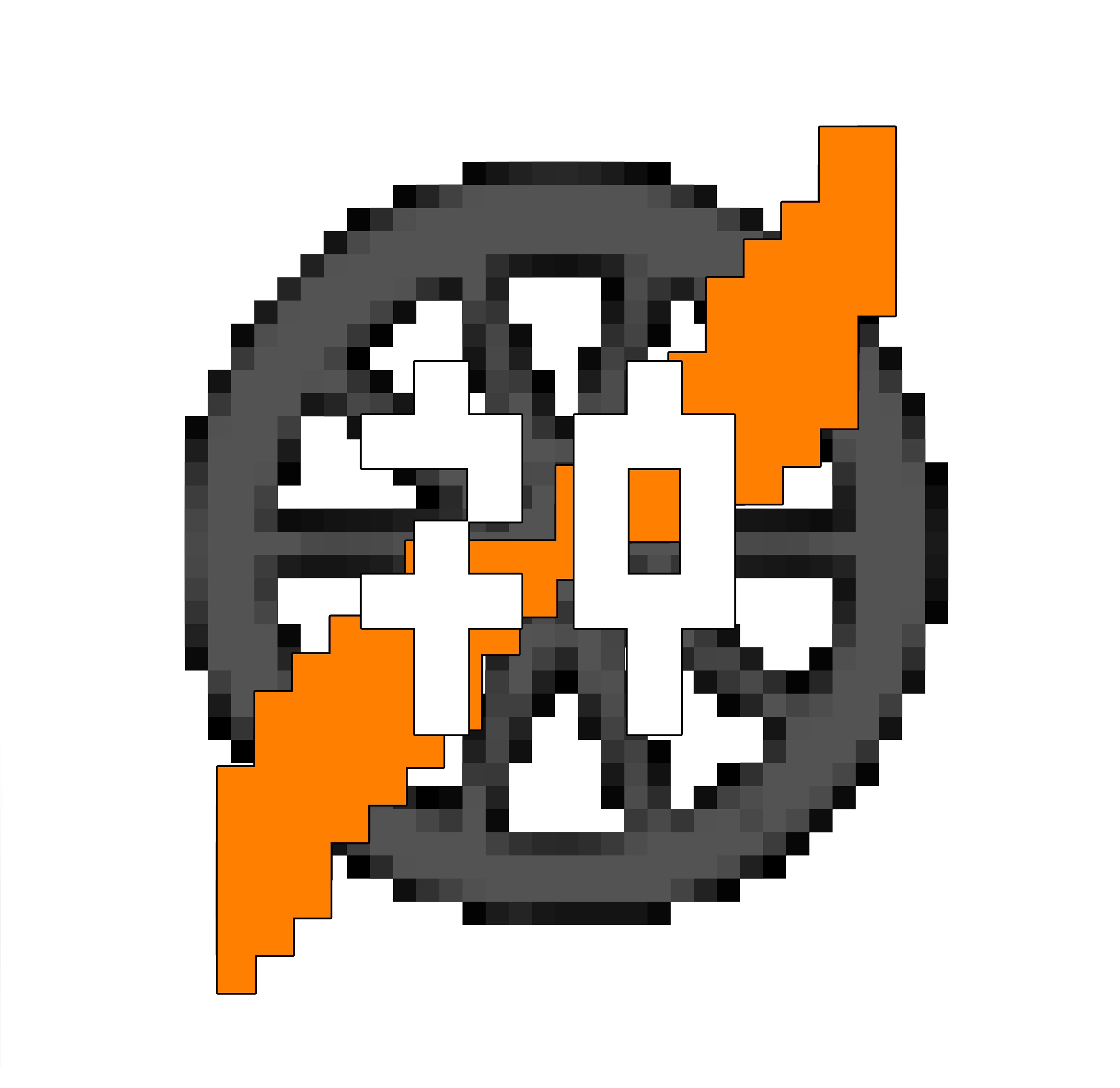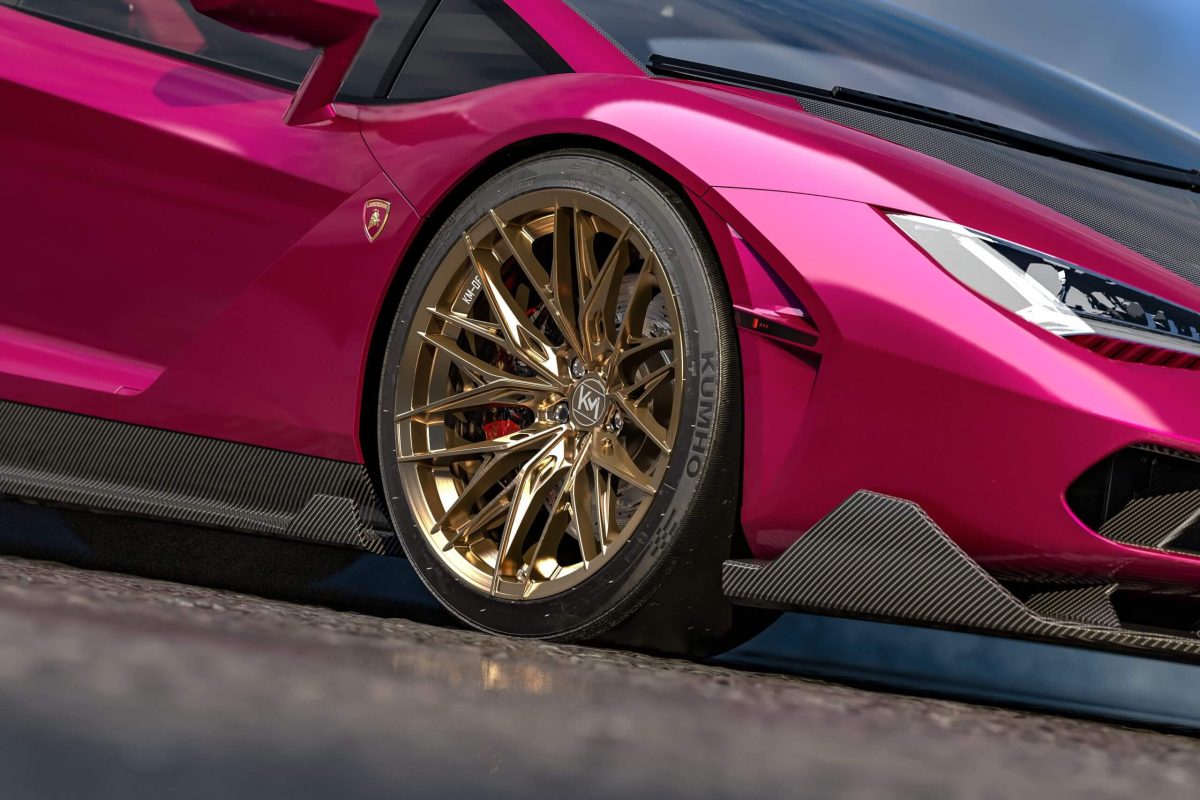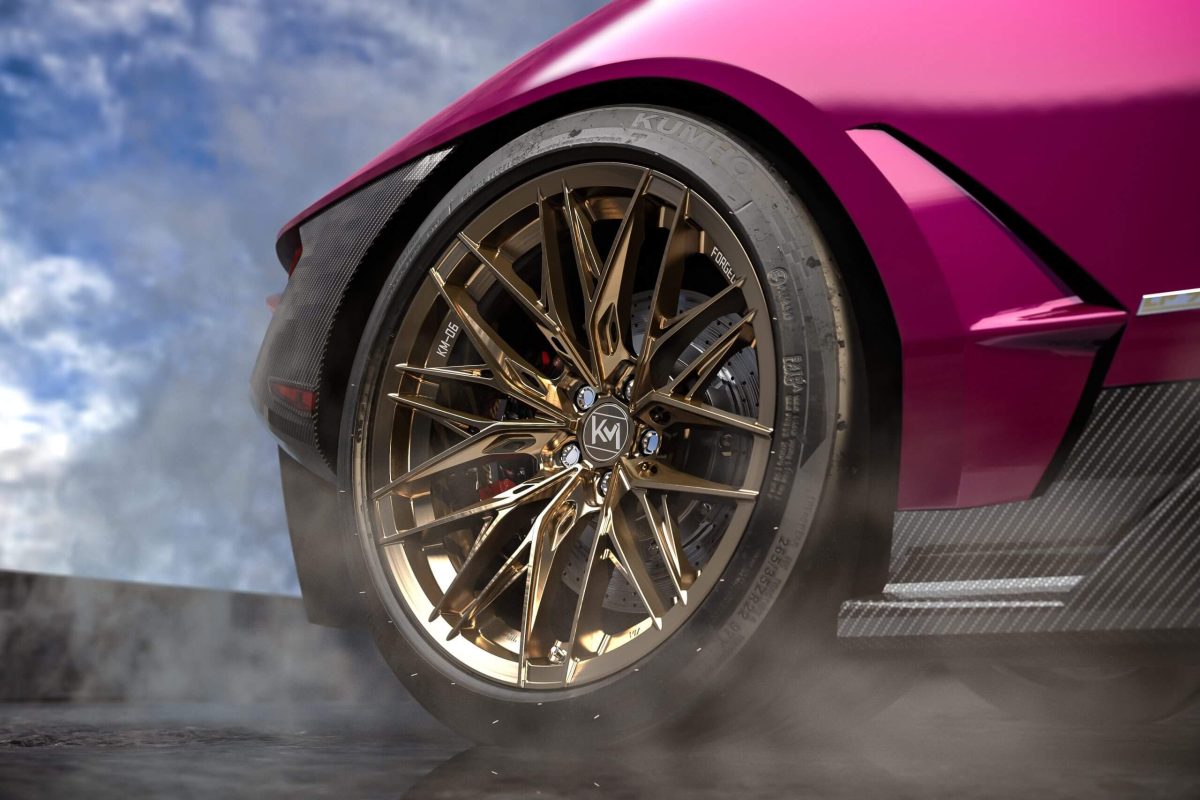What is a forged wheel? Are you always confused the forged wheels definition?When upgrading or replacing wheels, understanding the difference between wheel types is essential. This term refers to a specific type of wheel manufacturing process that results in wheels known for exceptional strength, durability, and performance. Let’s dive into the details of what forged wheels mean, their advantages, and why they may be the best choice for your vehicle, like BMW or Mercedes-benz.
Table of Contents
1. The Manufacturing Process of Forged Wheels
Forged wheels start from a billet, a large solid block of aluminum alloy. This billet undergoes intense heat and pressure, transforming it into a wheel. The forging process refines the internal structure of the metal, creating a tighter grain structure that boosts the wheel’s strength and resistance to wear. Unlike cast wheels, which are created by pouring molten aluminum into a mold, forged wheels are shaped through pressure, making them mechanically stronger and lighter.
By comparison, cast wheels may develop cavities and porosity, as the liquid metal can cool unevenly in the mold. This can compromise the wheel’s strength and require more material to achieve the necessary durability, often resulting in a heavier wheel. What are forged wheels? They’re the high-performance option, designed for strength, weight efficiency, and superior longevity.
2. Advantages of Forged Wheels
1) Strength and Durability
One of the most compelling reasons to choose forged wheels is their strength. The forging process eliminates air gaps, porosity, and shrinkage within the wheel material, resulting in a much denser structure than cast or flow-formed wheels. As a result, forged wheels can withstand higher loads and stress, making them ideal for heavy-duty applications, performance driving, and racing.
2) Lightweight Performance
Forged wheels are significantly lighter than their cast counterparts due to the material’s high-density structure. The reduction in weight improves vehicle performance by reducing rotational mass, which can positively impact acceleration, braking, and fuel efficiency. For anyone interested in maximizing their vehicle’s performance, forged wheels are a top choice.
3) Enhanced Wear Resistance
Thanks to their dense and uniform grain structure, forged wheels exhibit excellent wear resistance. This means they’ll hold up better against daily wear, rough terrains, and harsh conditions. Their durability also translates to a longer lifespan, often making the higher initial investment more cost-effective in the long run.
4) Customization Options
Many drivers choose forged wheels for their customization potential. Since the wheels are crafted from a single solid piece, forged wheels suppliers offer various finish options and fitment sizes, allowing enthusiasts to personalize their wheels to match their vehicle’s aesthetics and performance needs.
3. Comparing Forged Wheels with Other Wheel Types
Understanding how forged wheels compare to other types, like cast and flow-formed wheels, can help in making an informed decision.
What are Cast Wheels?
- Manufacturing Process: Created by pouring molten aluminum into a mold and allowing it to cool.
- Pros: Cast wheels are cost-effective, easily produced in bulk, and available in diverse styles.
- Cons: They are heavier and less durable due to internal cavities and potential porosity.
- Ideal Use: Street applications and light track use.
What are Flow-Formed Wheels?
- Manufacturing Process: A cast wheel is heated and shaped using rollers, which enhances its strength and reduces weight.
- Pros: Lighter and stronger than cast wheels; affordable alternative to forged wheels.
- Cons: While stronger than cast wheels, they still don’t match the durability and weight reduction of forged wheels.
- Ideal Use: Moderate performance applications where strength and weight are considerations.
What are Forged Wheels & What does Forged Wheels Mean?
- Manufacturing Process: High pressure and heat shape a solid billet of aluminum, resulting in a dense, lightweight, and durable wheel.
- Pros: Unmatched strength, lightweight, excellent wear resistance, and customization options.
- Cons: Higher cost due to the complex manufacturing process.
- Ideal Use: High-performance vehicles, off-road applications, and racing.
4. Benefits Summary: Why Choose Forged Wheels?
- Increased Performance: Reduced rotational weight enhances acceleration and handling.
- Long-Term Cost Efficiency: Though initially expensive, forged wheels last longer and are less prone to wear and damage.
- Enhanced Vehicle Safety: Stronger wheels reduce the risk of cracking or failure under high loads.
- Aesthetic Flexibility: With numerous finishes and designs available, they can be tailored to match vehicle styles.
5. Choosing the Right Foreged Wheels Supplier or Forged rims Supplier!
If you’re in the market for forged wheels, finding a reputable forged rims supplier is critical. Suppliers of forged wheels should be able to provide a variety of customization options, like Kami Forged Wheels, use high-quality materials, and offer industry-certified products. Investing in quality not only ensures better performance but also adds value and safety to your vehicle.
Embark on Your Journey with Kami Performance Wheels – Elevate Your Drive with Precision, Style, and the Power of Unrivaled Engineering.



